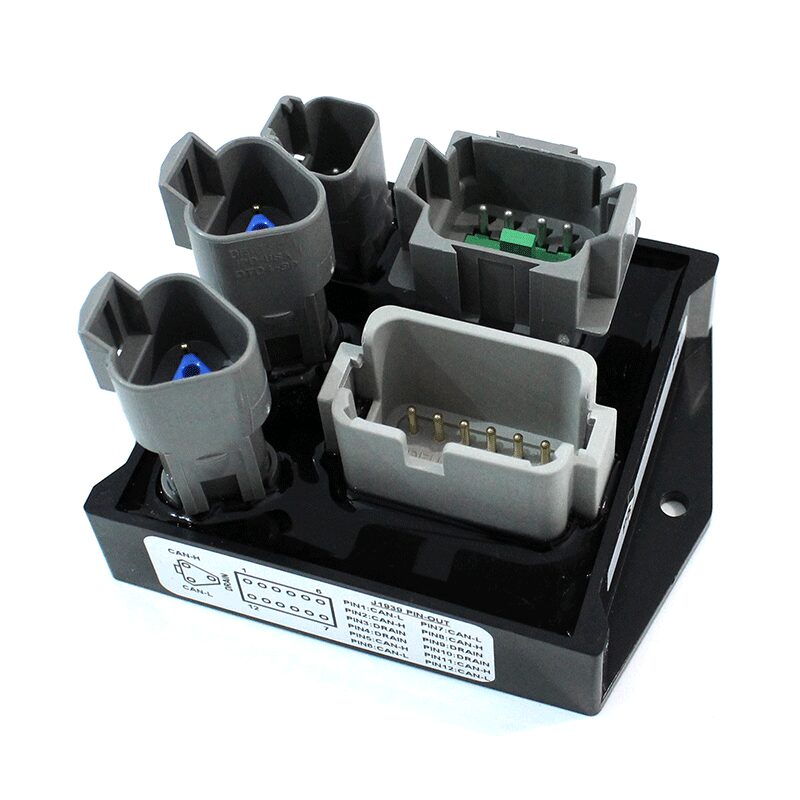Hybrid Connectors for Heavy-Duty Transportation
Hybrid connectors reduce the number of connectors and cables needed for advanced agricultural machinery and other heavy equipment. A single modern hybrid connector can do the work of two, four, six, or even more traditional connectors.

Today’s transportation, agricultural, and construction vehicles come feature-rich with computers, GPS systems, and an array of other electronic features. Equipping these heavy-duty systems with separate cables for signal and power can be costly and time consuming, requiring wire harnesses that are heavier and more complex. In response, manufacturers have developed hybrid connectors that can handle both signal and current, reducing the number of connectors and cables required. Hybrid connectors are smaller and more lightweight than traditional connectors that handle only signal or power. Once installed, hybrid connectors reduce the number of connection points, providing more efficiency when troubleshooting or repairing the electrical system.
A single modern hybrid connector can do the work of two, four, six, or even more traditional connectors. Some hybrid connectors require only one cable for power and signal going in, and these powerful interconnects can re-direct the power and signal to dozens of disparate devices.
Here’s a look at three leading hybrid connectors for heavy-duty transportation use.
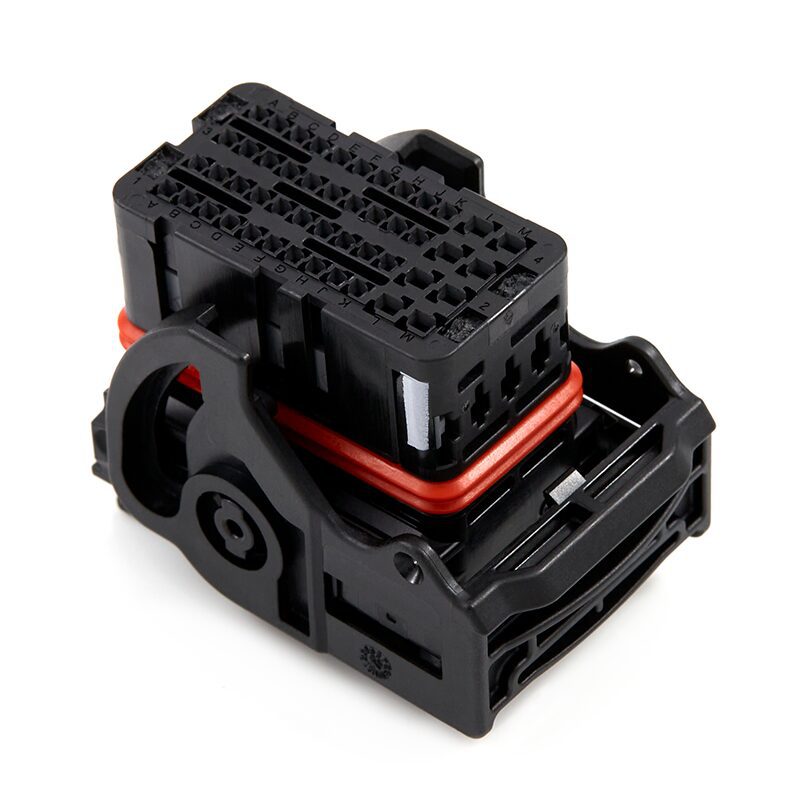
The CMC connector family from Molex. This modular, high-density hybrid connection system was developed for the transportation industry. The hybrid design of a Molex CMC 48-pin connector is clearly visible: The eight larger cavities at the right are for current wires and the 40 smaller ones are for data or signal wires.
Molex CMC connectors are often used to route power and signal to engine control units and power train applications, such as gear boxes and electronic parking brakes.
CMC connectors are designed with a lever-actuated locking feature to detect any wiring mistakes and improve terminal retention. The audible lever-lock operation provides easy mating and ensures a tight seal that can withstand high-pressure spray (IP6K9K rated). See the related demonstration video from Molex.
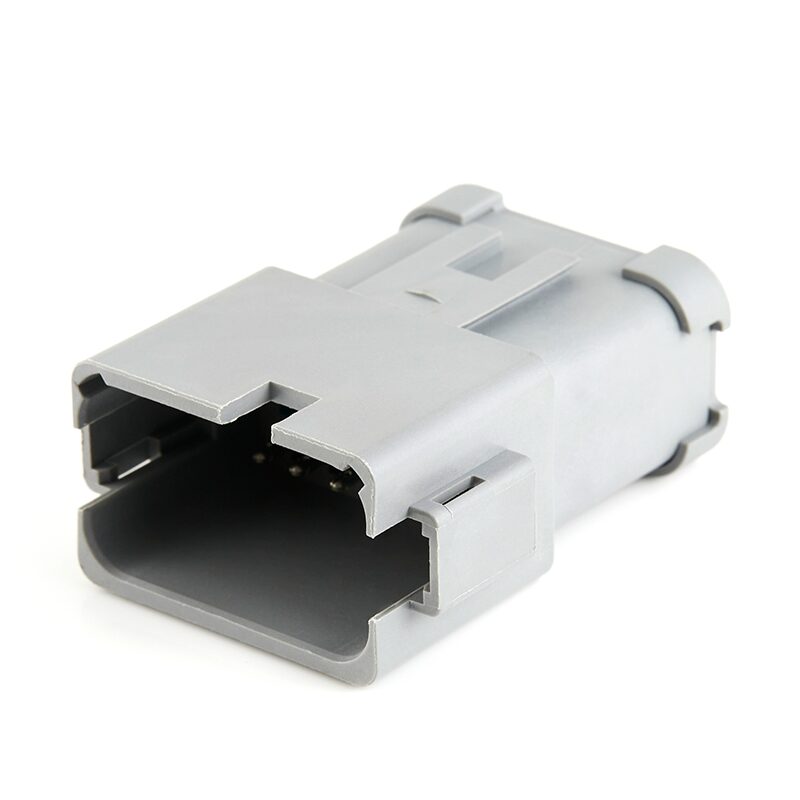
Amphenol Sine Systems’ Hyperbuss AT family of receptacle connectors. These hybrid connectors feature built-in busbars enabling a single power source to be fed into the connector and then split into as many as 18 connections. Hyperbuss connectors can be connected directly from a vehicle’s battery terminals, reducing wire harness size. These connectors contain superior environmental seals and an integrated wedgelock that confirms contact alignment and retention.
Hyperbuss AT connectors are a cost-effective solution for a variety of interconnect applications where a common “bussed” electrical pathway is required, such as connecting multiple circuit breakers, isolators, or switches. This type of connector can be used as a bus coupler to connect multiple circuits that would otherwise require exposed busbars.
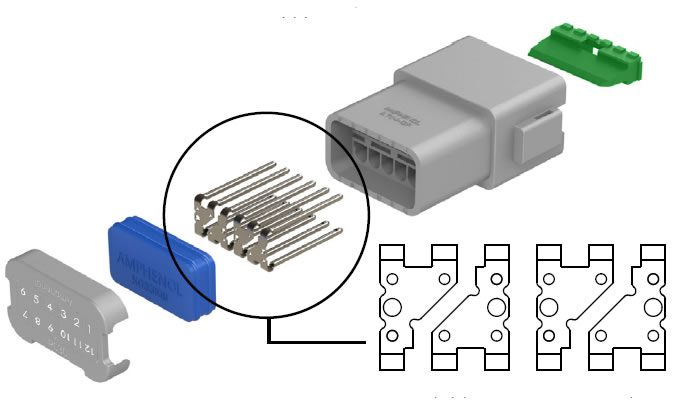
The internal bus bar & terminal assembly of an Amphenol Hyperbuss connector. This example shows a fully contained connector with a 12-pin layout to control up to 4 circuits.
Trombetta CAN Bus Power Splitters and Control Modules. These innovative hybrid connectors are designed to connect multiple devices to a J1939 CAN Bus network. By enabling the breaking out of CAN signals using one connector, these power splitters reduce the need for multiple plugs, wires, and harnesses. In addition to handling CAN Bus signals, these connectors also handle current.
Trombetta’s CAN Bus Power Splitters can be used in virtually any vehicle that utilizes CAN Bus technology. Trombetta also offers hybrid power splitters for standard 12-24VDC electrical system applications, with a sealed busbar design that provides a secure connection point that won’t corrode or loosen over time.
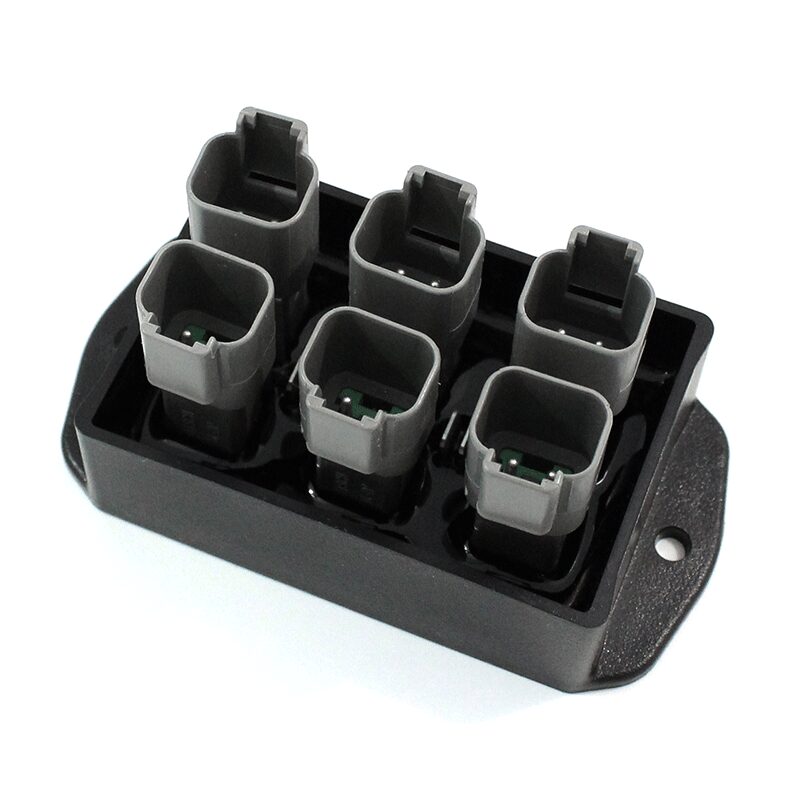
A Trombetta 5-Place Power Splitter for standard 12-24VDC applications, featuring a sealed bus bar for peak performance even in severe conditions.
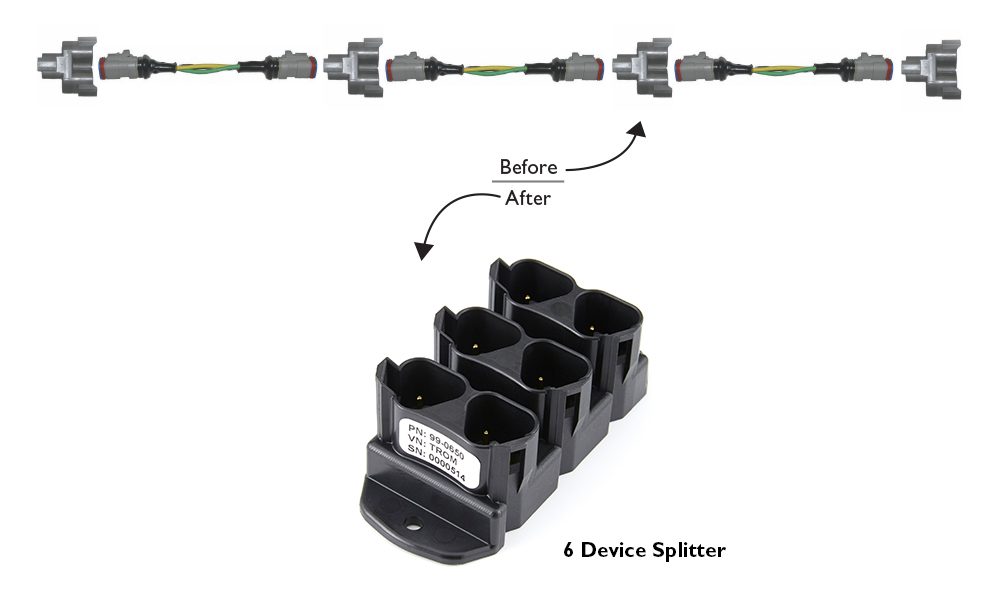
Wiring for CAN Bus can be complex and space consuming. Modern splitter connectors, such as the Trombetta 99-0650 CAN bus control module, offer a compact and easy-to-install alternative.
Considerations When Using Hybrid Connectors
When selecting a hybrid connector, make sure you know exactly how many contacts will be required. Also determine the exact size of each contact. These factors become increasingly important as you work with higher voltage and current rates. If you run too much power through a contact that is too small, you run the risk of a connector failure.
Pin density of the connector is also important. Hybrid connectors for transportation are available with densities of up to 48 pins or more. Depending on how many devices you need to connect, one or two well-chosen hybrid connectors might be able to accommodate your wiring in a very small footprint.
It is essential for heavy-duty equipment that components be able to handle temperature fluctuations. Make sure that any connector you select is specified to operate within the expected temperatures of your electrical system environment. This consideration is especially important when using connectors with built-in busbars.
Engineers and designers have an opportunity to make substantial changes to designs by using hybrid connectors. Replacing two or more connectors with one reduces total cost of ownership, simplifies design, and makes end users more efficient in maintaining the electrical systems. In short, hybrid connectors are often a better engineering solution.
To learn more about hybrid connectors solutions for heavy equipment, visit Waytek.
Like this article? Check out our other ruggedized, heavy duty and connected vehicles articles, our Transportation Market Page, and our 2022 Article Archive.
Subscribe to our weekly e-newsletters, follow us on LinkedIn, Twitter, and Facebook, and check out our eBook archives for more applicable, expert-informed connectivity content.
- Hybrid Connectors for Heavy-Duty Transportation - August 23, 2022
- CAN bus Connector and Cable Considerations - February 15, 2022
- Heavy-Duty Connectors for Off-Highway Applications - May 4, 2021
